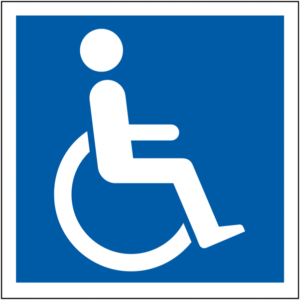Disasters can happen at any moment. Disaster Preparedness for seniors means planning ahead so you can avoid waiting in long lines for critical supplies, such as food, water and medicine, and you will also have essential items if you need to evacuate.
Community Hazard Assessment
What hazards threaten your community and neighborhood? Make a list of how they might affect you. Think about both natural (e.g., hurricanes, flooding, winter storms and earthquakes) and human-caused (e.g., hazardous materials and transportation accidents) and about your risk from those hazards.
- Which of these hazards are most likely to happen in your community?
- Earthquakes
- Flooding
- Hurricanes
- Toxic Spills
- Winter Storms
- Home Fires
- Tornadoes
- Wildfires
- Thunderstorms
Preparing for a hazard that is most likely to happen in your area will help you be prepared for any disaster. Remember, disasters can happen at any time.
Put together a Disaster Preparedness Kit
- For your safety and comfort, have a disaster supplies kit packed and ready in one place before a disaster hits.
- Assemble enough supplies to last for at least three days.
- Store your supplies in one or more easy-to-carry containers, such as a backpack or duffel bag.
- You may want to consider storing supplies in a container that has wheels.
- Be sure your bag has an ID tag.
- Label any equipment, such as wheelchairs, canes or walkers, that you would need with your name, address and phone numbers.
- Keeping your kit up-to-date is also important. Review the contents at least every six months or as your needs change. Check expiration dates and shift your stored supplies into everyday use before they expire. Replace food, water and batteries, and refresh medications and other perishable items with “first in, first out” practices.
Post Emergency Phone Numbers Near Your Phones
Post emergency numbers near all of your phones. Include the numbers of those in your support network. Remember that in some emergencies telephone lines might not be working. Consider having alternative plans for contacting those in your network.
Disaster Preparedness For Seniors
Senior Living and Assisted Living Communities
If you live in a senior community, become familiar with any disaster notification plans that may already exist. Talk to your community management or resident council about how you can all be more prepared together.
Be Aware: Help Inform Others
There may be people in your community that need extra assistance when a disaster occurs. Consider how you can assist them in their preparedness planning and during an emergency.
 Plan for Those with Disabilities
Plan for Those with Disabilities
Keep support items like wheelchairs and walkers in a designated place so they can be found quickly. This step is essential for those who have home-health caregivers, particularly for those who are bed bound.
Plan for Your Pets or Service Animals
Take your pets with you if you evacuate. However, be aware that pets (except service animals) are not permitted in many emergency public shelters for health reasons. Prepare a list of family, friends, boarding facilities, veterinarians and ‘pet-friendly’ hotels that could shelter your pets in an emergency.
Home Caregivers: Special Considerations
Prepare a disaster supplies kit for any family member who cannot do so on their own. If this person receives home care, speak with the case manager to see what the agency’s role would be in case of emergency at home or if evacuation is indicated.
Disaster Preparedness For Seniors: Practice Your Plan!
Develop home fire escape and evacuation plans and practice them every month in case of fire and other disasters particular to your area. Enlist the assistance of other family members if possible. Find out what provisions are available in your area in case evacuation is needed, especially if your family member requires an uninterrupted power source for survival.
Useful Disaster Preparedness Web Sites

